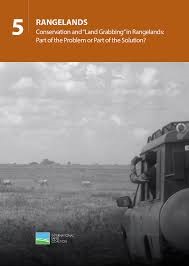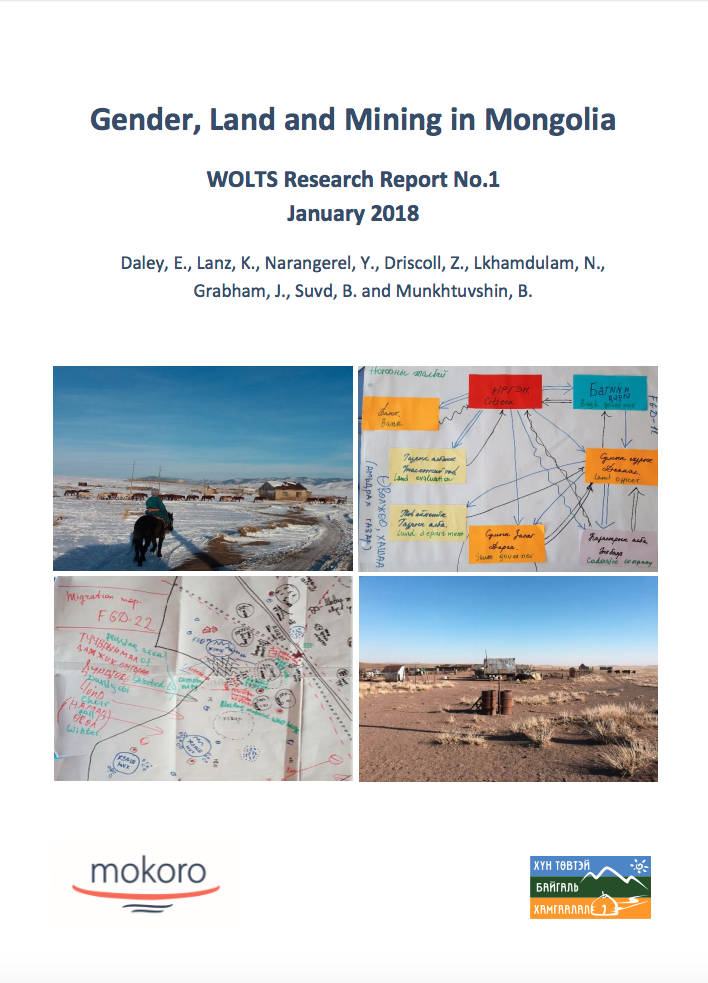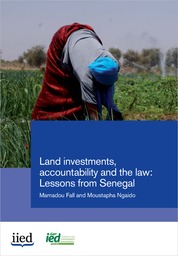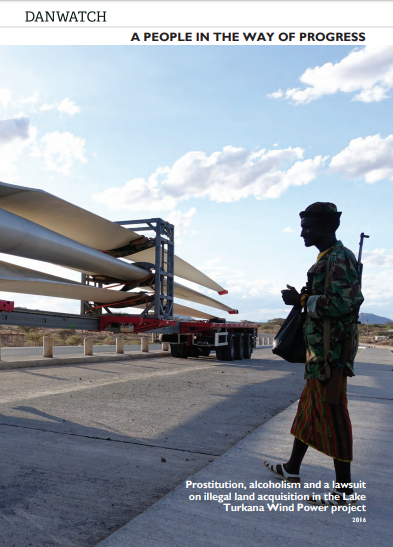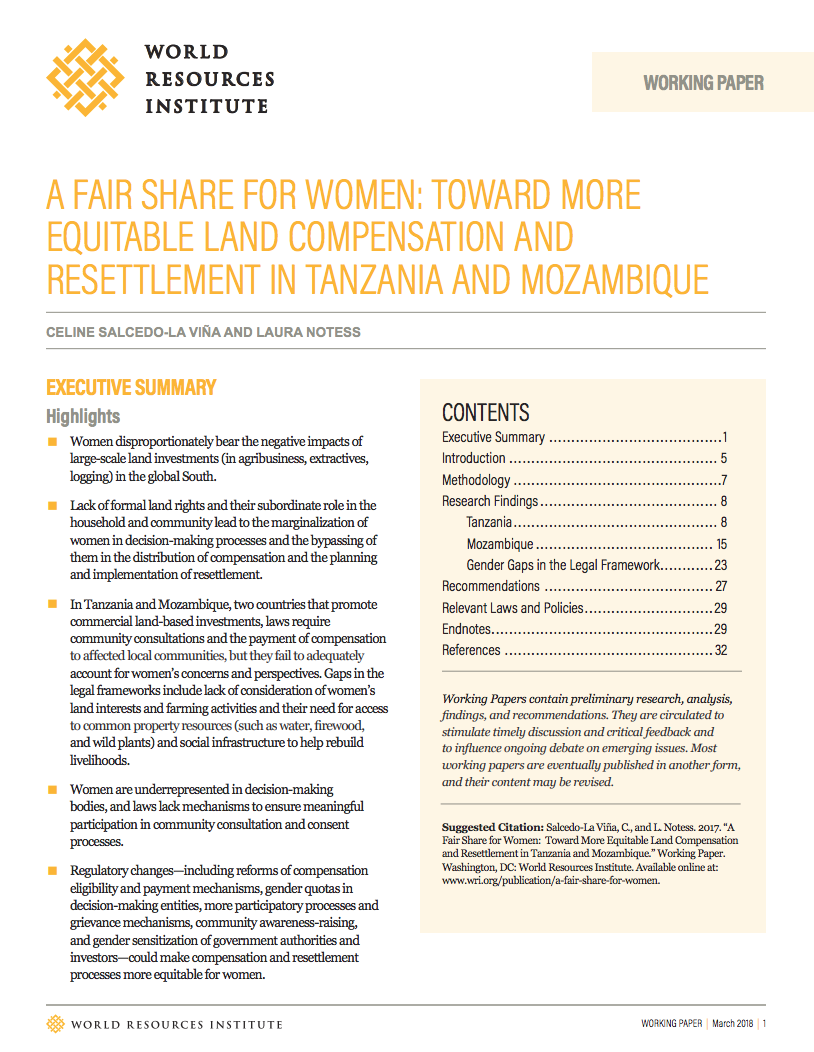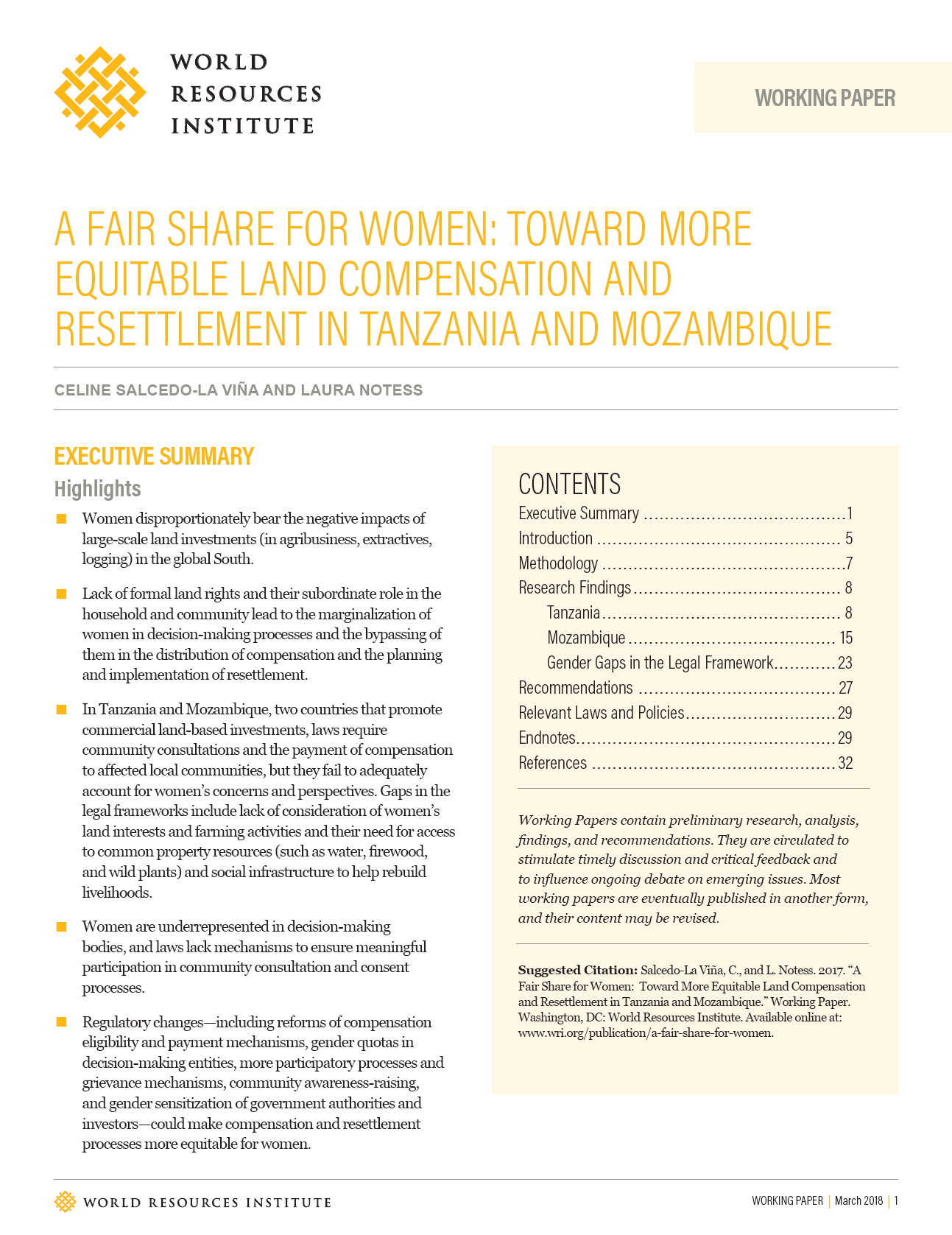Conservation and “Land Grabbing” in Rangelands: Part of the Problem or Part of the Solution?
Large-scale land acquisitions have increased in scale and pace due to changes in commodity markets, agricultural investment strategies, land prices, and a range of other policy and market forces. The areas most affected are the global “commons” – lands that local people traditionally use collectively — including much of the world’s forests, wetlands, and rangelands. In some cases land acquisition occurs with environmental objectives in sight – including the setting aside of land as protected areas for biodiversity conservation.

